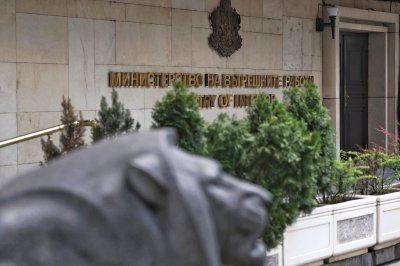Deputy Prime Minister and Minister of Innovation and Growth, Tomislav Donchev, and Minister of Finance, Temenuzhka Petkova, on March 24, gave a briefing, within which they announced the projects proposed for removal from the National Recovery and Resilience Plan (NRRP).
Regarding the implementation of the NRRP, there has been significant delay, stated Temenuzhka Petkova. The deadline for completing activities under the plan is less than 18 months, she added.
Tomislav Donchev said that "the salvation for the projects under theNRRP is higher speed and mobilisation".

"As Minister of Finance, the key issue for me is how to maintain the stability of public finances and how to prevent projects and investments that are part of the NRRP, which are intended to be funded from there, from being financed with national funds," he explained.
"This would have an 'extremely negative' impact on the budget," the Minister of Finance added. She emphasised that this is a critical issue because it would affect the deficit, which is crucial for the convergence reports for the Eurozone.
After talks with the European Commission, stating the de facto impossibility for one part of the included projects to be implemented on time, it was decided to review the implementation of all projects and to remove from the plan those "which have no chance of being implemented".

"We have identified 8 projects worth 1 billion and 20 million. A large part of these investments has been found to be feasible with other sources of funding. For example, the construction of water supply networks in settlements with between 5,000 and 10,000 residents, worth 300 million, is one of the projects being removed. It will be funded through the Operational Programme for Environment," Donchev explained.
A similar situation applies to the aerospace monitoring centre, he added. Efforts will be made to find alternative funding sources for the remaining projects that are being removed "because they are necessary." There are still 22 projects at risk. "I intend to give them a few more weeks," he said.
"Of the projects we are discussing — these 8 projects worth 1 billion and 20 million — not a single investment process has started for any of them, and for half of them, there has not even been a public procurement procedure. Nothing is happening there," Donchev stated.
Deputy Prime Minister and Minister of Innovation and Growth Tomislav Donchev said he was optimistic about saving at least half of the so-called risky projects.
"This would mean we would preserve about 70% of the projects that are part of the national plan. Keep in mind that some projects will keep part of their funding, while another part will be directed to other sources. For example, I give you the example of the renovation of apartment buildings," he clarified.
Tomislav Donchev clarified that active talks with the European Commission are underway.
"If Bulgaria mobilises and manages to implement all the reforms from the 2nd to the 9th payment, the rules here are slightly different from the operational programmes. Even if Bulgaria has not implemented all the investments, it should not have to return money to the European Commission," he said.
We need a drastic mobilisation, Donchev was adamant. Work because there is no time, he urged.
"Because we cannot lose the opportunity to make important and valuable investments because of negligence."
Regarding the vote of no confidence, Tomislav Donchev said that "this is a normal parliamentary procedure of the opposition".
"If a government is only focused on surviving, it will not have the courage and drive to get the job done. So, the view is that we will work whatever political horizon there is until the last day so that all the stalled, neglected, delayed projects can move forward because Bulgaria deserves all of these investments."
For the second consecutive month, we have restarted efforts to receive the second payment, Tomislav Donchev announced. "If all the laws are supported by the National Assembly, we may not lose anything from the second payment."
The Deputy Prime Minister and Minister of Innovation and Growth said that "what hurts him the most is the investment for 112, which is for 47 million". Funding for geothermal is also dropped.









 Чуй новините
Чуй новините Подкаст
Подкаст
























